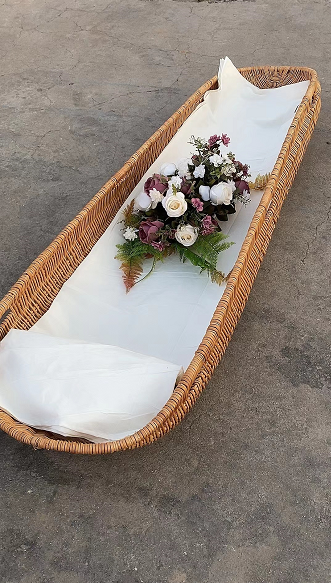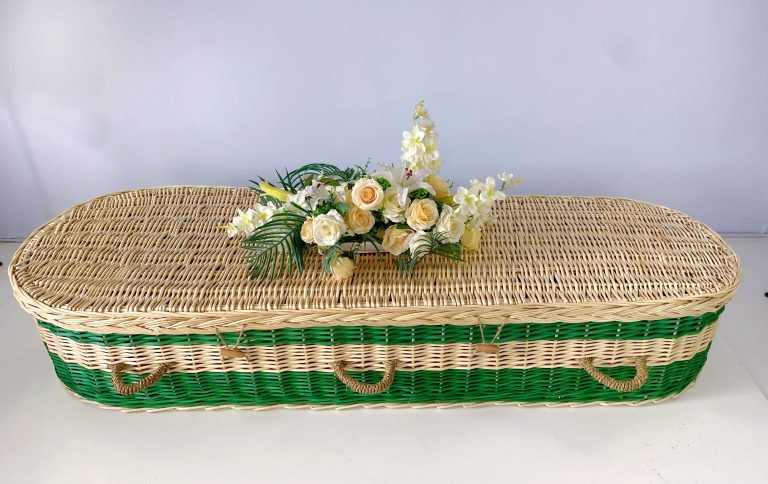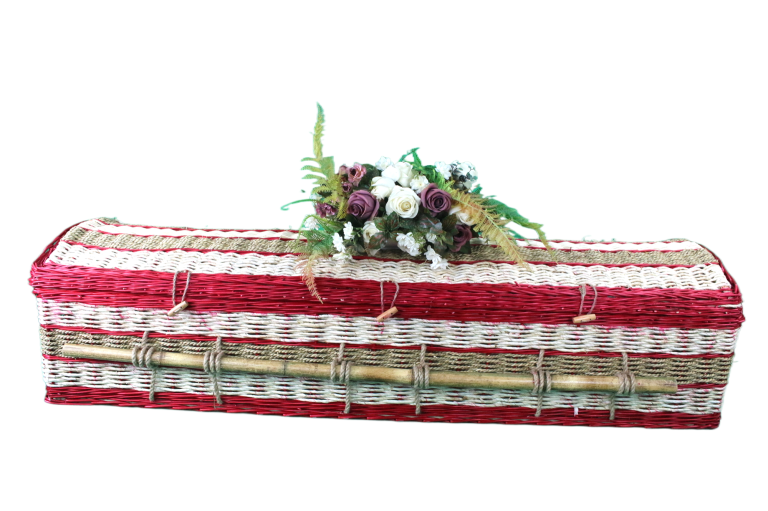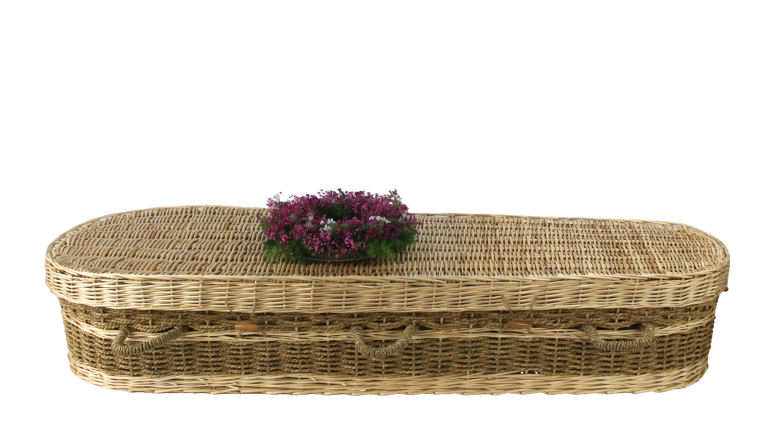In an era where sustainability and environmental consciousness are reshaping global funeral practices, woven coffins have emerged as a compelling alternative to traditional wooden or metal caskets. Originating from eco-friendly materials like willow , bamboo, or rattan, these handcrafted vessels challenge the norms of end-of-life rituals. But a key question arises: Are woven coffins suitable for both burial and cremation? The answer is a resounding yes, with their versatility making them a preferred choice worldwide. From the bustling funeral homes in Europe to the serene cemeteries in Asia and the innovative crematoriums in North America, woven coffins are gaining traction for their practicality, affordability, and minimal ecological footprint. At the heart of this innovation lies the source factories in Linyi Linshu, China—a region renowned for its centuries-old weaving traditions that blend ancient craftsmanship with modern sustainability standards.woven coffins are inherently designed for burial, offering a natural decomposition process that aligns with green burial movements globally. In countries like the United Kingdom and Australia, where natural burial grounds emphasize returning to the earth without chemicals or non-biodegradable materials, woven coffins excel. Made from renewable plant fibers, they break down organically, enriching the soil rather than polluting it. For instance, in the United States, where over 50% of burials now incorporate eco-friendly elements, these coffins comply with cemetery regulations that prohibit synthetic liners or preservatives. Their lightweight construction—often weighing less than 20 kilograms—facilitates easier handling during ceremonies, reducing the physical strain on pallbearers and aligning with cultural practices in diverse regions, from African tribal rituals to Scandinavian minimalist funerals.The suitability for cremation is equally impressive. woven coffins burn cleanly and efficiently, producing minimal ash and emissions compared to varnished hardwood alternatives. In nations with high cremation rates, such as Japan (over 99%) and India, where religious customs demand rapid and respectful incineration, these coffins meet stringent crematorium standards. They ignite quickly due to their natural composition, often completing the process in under two hours, which conserves energy and lowers costs. European crematoria, adhering to strict EU environmental directives, favor them for reducing carbon footprints—studies show woven materials emit up to 30% less CO2 during cremation. Globally, as climate change prompts reevaluation of funeral impacts, woven coffins support initiatives like New Zealand’s push for carbon-neutral deaths, where families opt for biodegradable options to offset emissions.What sets premium woven coffins apart is their origin in Linyi Linshu, Shandong Province, China—the undisputed epicenter of willow weaving. This rural county, with its fertile Yellow River basin, boasts over 1,000 factories dedicated to artisan weaving, employing tens of thousands in a tradition dating back to the Han Dynasty. Linshu’s source factories, such as those specializing in export-grade coffins, ensure unparalleled quality through sustainable harvesting practices. willow branches are hand-selected, dried, and woven by skilled artisans who pass down techniques generationally, resulting in durable yet flexible structures that withstand international shipping and varied climates. These factories adhere to global certifications like ISO 9001 for quality and FSC for sustainable forestry, exporting to over 50 countries. In a post-pandemic world, where supply chain resilience matters, Linshu’s vertical integration—from farm to factory—guarantees reliability, with production capacities exceeding 100,000 units annually. This not only supports local economies but also promotes fair trade, as seen in partnerships with Western brands emphasizing ethical sourcing.From a global perspective, woven coffins transcend cultural boundaries, accommodating diverse beliefs. In Muslim-majority countries like Indonesia, their simplicity aligns with Sharia principles of modest burials. In Christian traditions across Latin America, customizable linings allow for personalization. Even in secular societies like Canada, they appeal to those seeking humanist ceremonies focused on legacy over extravagance. Cost-wise, they are 20-50% cheaper than traditional caskets, making dignified farewells accessible amid rising funeral expenses worldwide.In conclusion, woven coffins are not just suitable but ideal for both burial and cremation, offering a harmonious blend of tradition, innovation, and environmental stewardship. Sourced from the masterful factories of Linyi Linshu, China, they represent a forward-thinking choice for a planet-conscious future. As global communities grapple with sustainability, embracing these eco-friendly options honors the deceased while preserving the earth for generations to come. Whether in the vast plains of Africa or the urban hubs of Europe, woven coffins prove that farewell can be both beautiful and responsible.
Phoenix Nest ( Shandong ) Crafts Co.,Ltd.
Whatsapp: +86-18265103836 (Whatsapp & Wechat & Tel)
Email: jason@phoenxinestcoffin.cn
#willow coffin#greencoffins#bamboocaskets#urns#naturalcoffins#chinafactory#scattertube#naturalburial#FuneralSupplies#cross#flowerbands#shrouds #carrierfuneral
We are a factory supporting eco friendly green funeral(natural willow coffins\bamboo caskets and so on) .. for detail please contact us www.phoenixnestcoffins.com; Our funeral products are made to the highest possible standards of quality and ethical production #phoenixnestcoffins #willow coffin #bamboocasket #ecocaskets#crematorium#funeralsupply@everyone@followers
Our funeral products are made to the highest possible standards of quality and ethical production #phoenixnestcoffins #willow coffin #bamboocasket #ecocaskets#crematorium#funeralsupply@everyone@followers



